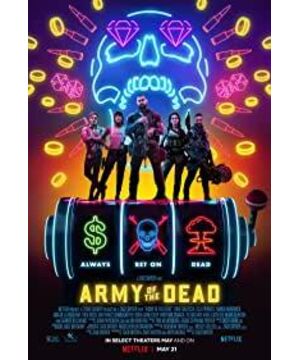Legion's plot is bloody/B-rated, and the story is crude, unintentionally or intentionally reminiscent of past B-movies. Compared with the story, the army of the living dead is more focused on the metaphor and satire of zombie culture. "Only once, we vote for ourselves ," jokingly ironic and self-deprecating through autobiographical tales.
Iteration of Zombie Allegory : Slaves squeezed - "Workers exploited by capital - "The public brainwashed by consumerism - " Audiences under consumerism in the Internet age
The dark passage into the kingdom of zombies is like the passage into the cinema. The staggering people in the dark are the audience, so that they cannot wake up from their dreams. Taking the film as a metaphor for the film industry, the protagonists of the dark adventure are the filmmakers and the directors themselves.
In Legion, the online community/movie industry is an " unreal and fragile tribal kingdom " that is "besieged and kept in captivity" , the new zombies that are implied to be created by technology are the audience in the online community, and the rabble of symbolic rebirth is in "New Holy Land" "Carnival", against the old world/old movie industry where the money is rampant. The new zombies establish a new discourse class, and in the form of tribes, they request tribute from the outside world to make ritual sacrifices to satisfy themselves.
When the right to judge is transferred from traditional media to the Internet, audiences who have been "aphasia" have a powerful discourse power, and from the perspective of consumerism, they demand "give us a dream that we can't wake up from", "let us complete the ritual and copy ourselves" ".
The Zeus sculpture, which embodies the spiritual pursuit of the filmmaker, is redefined and replaced by consumerism in the Legion story. There are only two worlds in the film, the outer world of capital and the new realm of consumerism. Risk in the kingdom is accompanied by wealth. Money belongs to the zombies as well as the capitalists. The irony cannot be more obvious.
And the protagonists/filmmakers need to believe in the promises of the old world and the hidden contracts of the new kingdom, and they can reach the other side safely by offering tribute. The film box and the money/box office in the underground vault are undoubtedly a metaphor for " success ", and the protagonists accept the temptation and submit to both to achieve this kind of success. While zombies still have principles, capitalists are insatiable, just wanting to cut off the heads of leeks for maximum benefit, resulting in the death of the project and the destruction of the new kingdom.
While the protagonists show heroic loftiness and a death-defying integrity, they are doomed from the moment they accept the definitions and terms of "success" in both worlds. Their willingness to admit defeat is also a kind of self-deprecation: they are not the first group, nor the last group, when the pursuit of personal spiritual pursuit becomes the appearance of "success", "we" repeats in the alienated world Reincarnation, even if not this time, will fail the next time. Another angle of accepting reality is called compromise and escape.
The only one who can really leave this path of failure is the most "stupid" daughter, who follows her innate sense of morality from the very beginning, refuses to be disciplined and alienated, rejects the cruelty of reality, is naive and rebellious, and is reckless." madness". And the price of this path is true freedom and independence through spiritual patriarchy. From looking for his father to betray his father to killing his father, there is a very complete expression in the movie. But from the point of view of interpretation, the "daughter" actually died from the beginning, and the opening montage hinted at "losing" her daughter.
Perhaps death is the only way out of this absurd world.
There are two ways to watch movies, one is to watch the story on the surface of the movie, and the other is to watch the expression of the author behind the movie. If the author's expression is the "truth" constructed by the author, the story is a layer of veil and an illusion on the "truth" surface. There is no contradiction in most commercial films, where we feel the author's expression through a layer of veil, or the hallucination itself, but Zack Snyder is an exception.
Zach Snyder always pays more attention to personal expression, instead of giving a "perfect dream", the cracks on the surface are the way to understand the core of his expression. The contradictions of the plot often point directly to the director's cryptic language, representing another possibility for commercial films: not to be a sleepy zombie, to maintain dialogue and communication, and to be closer to the conveyance of language than the story.
Perhaps the lines can better express Zha Dao's hidden emotions.
"We're doomed to repeat our failures and end up starting over in inexplicable, ironic form."
For such a self-deprecating movie, a smile is enough.
View more about Army of the Dead reviews











